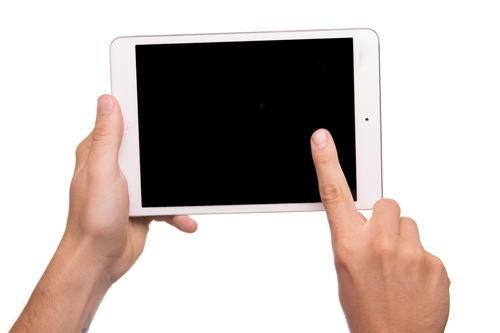3 February 2017. A company spun-off from Indiana University is marketing software written in its medical school to relate pediatric clinical guidelines to parents’ concerns during office visits. Digital Health Solutions LLC, in Indianapolis, was founded recently by Stephen Downs and Tammy Dugan, two of the software’s developers in the university’s Child Health Improvement Research and Development Lab.
Downs, director of the lab and professor of pediatrics at IU, and computer scientist Dugan began work on the software more than a decade ago to make it easier for pediatricians to deal with thousands of primary care guidelines applicable to office visits. The package, known as Child Health Improvement through Computer Automation, or Chica, electronically captures parents’ reasons for office visits, then correlates these concerns to clinical guidelines, with actions and outcomes recorded for patients’ electronic health records.
Pediatricians, like other primary care providers, often struggle with the overwhelming volume of clinical guidelines for their practices. Chica incorporates clinical guidelines as a set of rules, written in a standard language for automated clinical guidelines known as Arden Syntax, an industry specification managed by the Health Level 7, or HL7, standards organization. The software uses a subset of the Arden Syntax, but compliance with the standards means its data can be integrated more easily into electronic health records also meeting HL7 standards.
When visiting an office using Chica, parents are given a tablet in the waiting room and asked to answer 20 questions about their visit. Once completing the questions, data from the tablets are parsed through the rules-based guidelines, with recommendations highlighted for physicians when they examine the children.
“Based on the family’s responses,” says Downs in a university statement, “the software uses its prioritization process to select the most important issues for the physician to address during the visit. The family can provide information on a wide range of topics, including general preventive counseling, asthma, attention deficit hyperactivity disorder, autism, domestic violence, iron deficiency, lead exposure, maternal depression, tuberculosis and more. It also allows physicians to alert patients to problems that may otherwise be overlooked.”
Dugan says that integration of Chica into physician workflows and systems has so far not been a problem. “When doctors access a patient’s electronic health record, or EHR,” notes Dugan, “an embedded link allows them to visit Chica. Once the doctors have checked all the boxes, indicating how they responded to the alerts, the information is submitted as a block of text to EHR software that can then be incorporated into the provider’s note, thereby streamlining clinical documentation.”
Chica was first used within the Indiana University community, integrating its data into electronic health records designed by Regenstrief Institute, affiliated with the medical school that studies automation in health care. Later, clinics in the Eskenazi Health system in Indiana adopted the Chica system. In 2015, Downs said Chica served more than 44,000 patients, a number now estimated at more than 50,000.
Reports of Chica in professional literature prompted requests for the software from other health systems, which led to founding of Digital Health Solutions. Its developers believe its concept can be expanded to adult primary care and specialist practices. Downs also believes Chica can help speed reimbursements from health insurance companies. “Payers of health care are looking for ways for providers to demonstrate superior-quality care,” he adds. “The system captures data that improves and demonstrates the quality of care, which could be used to improve reimbursement.”
Read more:
- UC San Francisco, Intel Partner on Health Analytics
- Genetic Tests, Elec. Health Records Show Hidden Disease
- Crowdfunded Digital Health Investment Fund Launches
- Commercial Genome Service Launches Based on Open Data
- Challenge Seeks Health Technology Start-Ups
* * *


 RSS - Posts
RSS - Posts
[…] Univ. Spin-Off Offering Pediatric Care Software […]